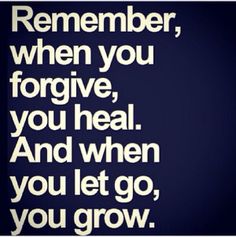 Stress. Struggle. Tension. Fear. Strain. Hassle. Pressure. Worry. Anxiety. These are the ingredients for a caustic environment, headaches, almost certainly fractious relationships and, if left unchecked, potential coronary problems. It is possible to reduce and maybe even eliminate these negative states by changing your response to situations and embracing the three siblings that can lead to a more peaceful, enjoyable life.
Stress. Struggle. Tension. Fear. Strain. Hassle. Pressure. Worry. Anxiety. These are the ingredients for a caustic environment, headaches, almost certainly fractious relationships and, if left unchecked, potential coronary problems. It is possible to reduce and maybe even eliminate these negative states by changing your response to situations and embracing the three siblings that can lead to a more peaceful, enjoyable life.
Stress, struggle, tension, fear, strain, hassle, pressure, worry, and anxiety are all negative conditions caused by reactions. In my work, I’ve concluded that how my Knower/Judger perceives a situation underpins all these negative conditions (and a host of others).
I can be OK with it (it meets my K/J expectation). I can be not OK with it (it does not meet my K/J expectations). Or my reaction can fall anywhere in between OK and not OK, depending on how much the situation deviates from the expectation and how important the outcome is to my K/J. (Some things are really fouled up, but I don’t care very much.)
Let’s assume that we care a lot about the outcome and take that component out of the mix. So what happens either meets my K/J criteria or it does not. If it does, voilà! Happy camper. If not, refer to some of the first nine words of this article. Some form of one or another of these begins to pile up.
From the perspective of my reactions, when an episode occurs that does not meet my K/J expectations, in order to proceed productively, I have always tried to fall back on my paraphrased trio of reactions from Eckhart Tolle:
1. I can accept the outcome.
2. I can choose to enjoy the outcome (usually from some educational perspective, such as believing there are lessons in failure).
3. I can engage the outcome enthusiastically (which goes beyond the intellectual understanding of lessons in failure and actively pursues additional improvement).
Any other K/J response I can think of contributes to the negative environment, making it more difficult for me to proceed productively, and for those around me (certainly those who have failed me) to proceed productively.
So if something has occurred, I can choose to behave in a manner that taps off power from the stress and struggle, or I can react in a relatively programmed manner that results in predictable added anxiety and stress. It’s important for me to understand that it is my choice.
This works for me when the proverbial shit hits the fan.
But what if I want to develop an atmosphere where the likelihood of these unmet expectations is lowered and the risk of a negative environment is reduced? What if I want to create a team atmosphere where creativity and growth are desired, even if it risks getting my K/J out of whack?
I refer to the three siblings: forgiveness, letting go, and altruism.
It is said that forgiveness benefits the forgiver more than the forgiven. Here’s a case in point. I find it notable that, after the tragedy in Charleston, SC, last month, the church, its members, and family members of the murdered all came forward quickly and assertively to let the world know that they forgave Dylann Roof for killing the nine members of the bible study group. CNN had no story. Jesse Jackson and Al Sharpton never showed up. Why? Calm prevailed.
Forgiveness has that effect. This was a total antithesis to the drama surrounding events in Ferguson, MO, and Baltimore, MD. It’s biblical. There’s power in turning the other cheek. A similar action stole the drama at the Amish school near Lancaster, PA, in 2006. What’s done is done. I can choose to forgive the reasons why and the perpetrators, or I can carry it as anxiety and stress…my choice.
My mentor, Jut Meininger, spent the last three years of his life attempting to get me to just “give up the expectations.” Think about it. If the foundation of all frustration is expectation, then if I manage expectation, I can minimize frustration, right?
I can, for example, make expected outcomes less important. I can understand that the Cardinals might not win the game in the ninth inning…that it is a possibility. I can flex with outcomes that don’t meet my K/J expectations, and when they occur, I can be cool with that. I can forgive. Letting go of my K/J expectations is one behavior with which I can keep the atmosphere more productive.
Altruism, to me, is a karma thing. I believe we contribute to and withdraw from the karma bank on a regular basis. Once I’ve gotten to the point where I can forgive all the stupid things people do that piss my K/J off (rather than rant and challenge), and let go of my expectation so very little, if anything, pisses my K/J off, I’m now in the realm of contributing. Forgiveness and letting go are defensive strategies that protect me from getting cross with the world and the world with me.
Altruism is an assertive investment in that world. I take my time, my money, my emotion, and make someone else’s life better, happier, less strenuous. And it takes an investment of real assets, not just some of my excess inventory. Altruism requires the contribution to cost me something…not just skim some resources off the top. Do something for another that keeps me from something I’d do for myself. Give of myself so another can prosper.
When I look at the reactive and proactive strategies for reducing levels of those first nine words in this article, I see parallels.
Reactive Proactive
1. Accept Forgive
2. Enjoy passively Let go
3. Engage enthusiastically Be altruistic
To be clear, these are all choices I can make, some at the point of crisis and some before it gets that far. They can be your choices as well.


